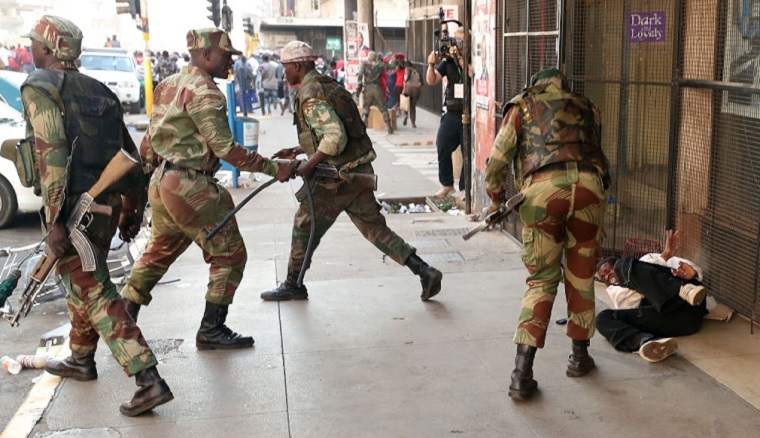 The Commission considered evidence from various witnesses across the political divide and the generality of the populace and made several findings. However, these findings were made against the background that police investigations relating to some of the cases cited during the Commission’s hearings are yet to be finalised. Nevertheless, the Commission was satisfied that the substantial evidence it had received during its fact-finding mission, was sufficient for it to make key findings under various themes.
The Commission considered evidence from various witnesses across the political divide and the generality of the populace and made several findings. However, these findings were made against the background that police investigations relating to some of the cases cited during the Commission’s hearings are yet to be finalised. Nevertheless, the Commission was satisfied that the substantial evidence it had received during its fact-finding mission, was sufficient for it to make key findings under various themes.
The crucial findings are that:
- The demonstrations which became riotous and caused extensive damage to property and injury had been incited, pre-planned and well organised by the MDC Alliance;
- The particular circumstances prevailing on the day justified the deployment of the Military to assist the Police in containing the riots; and
- Six (6) people died and thirty-five (35) were injured as a result of actions by the Military and the Police.
The evidence showed that the Government deployed the Military in accordance with the Constitution and the applicable law. The Commission also considered that whilst the deployment of the Military was lawful, the operational framework in terms of Section 37 (2) of Public Order and Security Act [Chapter 11:07] was not fully complied with in that the deployed troops were not placed under the command of the Harare Regulating Authority.
Recommendations
The Commission made several recommendations. Some of the key ones concern:
- Payment through a special Committee to be set up by the Government, of compensation for losses and damages caused including in particular, support and school fees for the children of the deceased;
- Promotion of political tolerance, and responsible and accountable leadership and citizenry;
- Electoral reforms including the development of Information Communication Technology (ICT), to among other things enhance the transparent and expeditious announcement of election results;
- The enforcement of law and order in order to ensure that the events of the 1st of August 2018 are not repeated;
- Accountability in respect of the alleged perpetrators; and
- Nation building and reconciliation including an initiative for multi-party dialogue and cooperation.
Conclusion
The testimonies and submissions that the Commission received indicated that the scope and consequences of the violence that occurred on the 1st of August 2018 were regarded as unprecedented in the history of Zimbabwean elections. The appointment and composition of the Commission of Inquiry, with a majority of international members, confirms President Mnangagwa‘s determination to ensure a non-repetition of such an unwholesome national experience in future.
From the testimonies of the witnesses who appeared before the Commission, it was noted that there is at present a very worrisome degree of polarisation and bitterness within the body politic of Zimbabwe. In this regard, the Commission commends the continuing statements by the President of the Republic calling for reconciliation, healing and unity among the citizenry. We urge all the people of Zimbabwe to respond positively to the President’s appeals and, at the same time, the Government to reinforce these appeals with inclusive policies.
From our wide ranging fact-finding experience in Zimbabwe, we believe that President Mnangagwa is determined to open a new chapter in the policies and activities of the Government of the Republic of Zimbabwe, including the restoration of the country’s diplomatic and commercial relations with the international community.
(422 VIEWS)






0 Comments